|
|
|
|
|
|
 |
| KEYNOTE |
|
 |
| . |
|
|
Claudia Backes
University of Heidelberg, Germany
Keynote – Plenary Session
Claudia has received her Ph.D with honors in 2011 from the University of Erlangen, Germany. After some time as deputy executive director in the Erlangen Cluster of Excellence “Engineering of Advanced Materials” Claudia received a fellowship grant from the German Research Foundation (DFG) in 2012 and moved to Jonathan Coleman’s groups at Trinity College Dublin, Ireland. In 2015, she returned to Germany and started her independent research at the Chair of Applied Physical Chemistry at the Heidelberg University funded through the prestigious Emmy Noether funding from the German Research Foundation from 2016. Currently, her team comprises five PhD students, one postdoc and several undergraduate students. Claudia’s research interests are in liquid exfoliation, nanosheet size control and size-dependent properties, chemical modification and production of composites and hybrid structures.
|
|
|
|
|
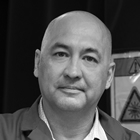 |
| KEYNOTE |
|
 |
| . |
|
|
Alexander Balandin
University of California, Riverside, USA
Keynote – Plenary Session
Alexander A. Balandin received his BS and MS degrees Summa Cum Laude in Applied Physics and Mathematics from the Moscow Institute of Physics and Technology (MIPT), Russia. He received his second MS and PhD degrees in Electrical Engineering from the University of Notre Dame, USA. In 1999 he joined the Department of Electrical and Computer Engineering, University of California – Riverside (UCR), where he is presently a Distinguished Professor of Electrical and Computer Engineering, a University of California Presidential Chair Professor of Materials Science and Engineering, and a Director of the Phonon Optimized Engineered Materials (POEM) Center. Professor Balandin is a recipient of The MRS Medal from the Materials Research Society for his discovery of the unique heat conduction properties of graphene, The Pioneer of Nanotechnology Award from IEEE for his nanotechnology research, and The Brillouin Medal from the International Phononic Society for his research of the acoustic phonon transport in graphene. He is an elected Fellow of several professional societies, including MRS, APS, IEEE, OSA, SPIE, and AAAS. He is among the Highly Cited Researchers; and serves as Deputy Editor-in-Chief for Applied Physics Letters
|
|
|
|
|
 |
| KEYNOTE |
|
 |
| . |
|
|
Antonio H. Castro Neto
National University of Singapore, Singapore
Keynote – Plenary Session
Professor A. H. Castro Neto got his Ph.D. in Physics at University of Illinois at Urbana Champaign in 1994. In 1994, he moved to the Institute for Theoretical Physics at the University of California at Santa Barbara as a postdoctoral fellow. In 1995, he became an Assistant Professor at University of California at Riverside. In 2000, he moved to Boston University as Professor of Physics. At Boston, Prof. Castro Neto became one of the leading theorists in the study of graphene. In 2010, Prof. Castro Neto became the Director of the Graphene Research Center and Distinguished Professor at the National University of Singapore . In 2003, Prof. Castro Neto was elected a fellow of the American Physical Society. He is the colloquia Editor for Reviews of Modern Physics, and co-editor for Europhysics Letters. Prof. Castro Neto was awarded the 11th Ross J. Martin Award by the University of Illinois at Urbana-Champaign, the University of California Regent Fellowship, the Alfred P. Sloan Research Fellowship, the visiting Miller Professorship by the University of California, Berkeley, the visiting Gordon Godfrey Professorship by the University of New South Wales, Australia, and the Distinguished Visiting Chair Professor at the SKKU Advanced Institute of Nano-Technology (SAINT), South Korea. Prof. Castro Neto has authored more than 200 manuscripts and has published in prestigious journals including Science, Nature Materials, Nature Physics, and Physical Review Letters, and has over 12,000 citations. Prof. Castro Neto has given more than 200 seminars worldwide.
|
|
|
|
|
 |
| KEYNOTE |
|
 |
| . |
|
|
Jonathan Coleman
Trinity College Dublin, Ireland
Keynote – Plenary Session
Jonathan Coleman is the Professor of Chemical Physics at Trinity College Dublin. His research involves production of 2D materials such as graphene and molybdenum disulphide for applications in nanocomposites, energy storage, sensing and electronics. He has published approximately 330 papers in international journals including Nature and Science, has a h-index of 93 and has been cited ~50,000 times. He was recently listed by Thomson Reuters among the world’s top 100 materials scientists of the last decade and was named as the Science Foundation Ireland researcher of the Year in 2011. Prof Coleman has been involved in a number of industry-academic collaborative projects with companies including Hewlett-Packard, Intel, SAB Miller, Nokia-Bell Labs and Thomas Swan.
|
|
|
|
|
 |
| INVITED |
|
 |
| . |
|
|
Fokko de Vries
ETH Zurich, Switzerland
Invited – Plenary Session
Fokko de Vries received his BSc, MSc and PhD degrees at Delft University of Technology. He obtained his PhD in the lab of Leo Kouwenhoven where he investigated superconducting devices in various semiconductors with strong spin-orbit coupling. Currently, he is working as a postdoctoral researcher in the lab of Klaus Ensslin and Thomas Ihn at the Swiss Federal Institute of Technology (ETH) Zurich. His research is centered around quantum transport in twisted graphene nanodevices, with a focus on superconducting devices.
|
|
|
|
|
 |
| KEYNOTE |
|
 |
| . |
|
|
Vladimir Falko
National Graphene Institute, University of Manchester, UK
Keynote – Plenary Session
Vladimir Fal’ko (ORCID 0000-0003-0828-0310) is condensed matter theorist responsible for many advances in understanding of electronic and optical properties of two-dimensional materials and their heterostructures (graphene, silicene, transition metal dichalcogenides, metal chalcogenides) and for various aspects of theory of quantum transport and fundamentals of nanoelectronics. His career was marked by Humboldt Fellowship, EPSRC Advanced Fellowship, European Research Council Advanced Investigator Grant and Synergy Grant, and Royal Society Wolfson Foundation Research Merit Award. Falko was the initiator of ‘Graphene Week’ conference series and a Chair-organiser more than 30 other international meetings; he is founding Editor-in-Chief of the IoP Journal ‘2D Materials’ (maintaining IF~7), and he serves as the Leader of Workpackage ‘Enabling Science’ in the European Graphene Flagship Project.
|
|
|
|
|
 |
| INVITED |
|
 |
| . |
|
|
Talieh S. Ghiasi
University of Groningen, The Netherlands
Invited – Plenary Session
Talieh S. Ghiasi received her Bachelor’s and Master's degrees in solid-state physics at Iran University of Science and Technology (2014). She got her second Master's degree in Nanoscience at the University of Groningen, the Netherlands (2016). For her Ph.D., she worked with Prof. Bart van Wees at Zernike institute. The highlights of her Ph.D. research (2016-2020) are the proximity-induced spin-orbit coupling and magnetism in graphene, including the experimental realization of anisotropic spin transport, charge-to-spin conversion mechanisms, spin-polarization of conductivity, and spin-dependent Seebeck effect in graphene. She is currently a postdoctoral researcher at the University of Groningen, working on spin and magnon transport in two-dimensional magnetic materials.
|
|
|
|
|
 |
| INVITED |
|
 |
| . |
|
|
Avik Ghosh
University of Virginia, USA
Invited – Plenary Session
Avik Ghosh is Professor at the Charles Brown Dept of Electrical and Computing Engineering and the Dept of Physics at the University of Virginia. He did his PhD in condensed matter theory at the Ohio State University, and a postdoctoral fellowship in Electrical Engineering at Purdue University. He is the UVA site-director of the NSF-Industry University Cooperative Center on Multifunctional Integrated Systems Technology (MIST). Ghosh has authored 125+ refereed papers and a book (“Nanoelectronics – a Molecular View”, World Scientific) in the area of computational nano-materials and devices. He has given over 125 invited lectures worldwide. He is Fellow of the Institute of Physics (IOP), senior member of the IEEE, and has received the IBM Faculty Award, the NSF CAREER Award, a 2006 best paper award from the Army Research Office, and UVA’s All University Teaching Award. His group’s work with Columbia University on negative index behavior in graphene was voted by the editors of Physics World as one of the top10 breakthroughs of 2016.
|
|
|
|
|
 |
| KEYNOTE |
|
 |
| . |
|
|
James Hone
Columbia University in the City of New York, USA
Keynote – Plenary Session
James Hone is currently Wang Fong-Jen Professor of Mechanical Engineering at Columbia University, and director of PAQM, Columbia’s Materials Science Research and Engineering Center (MRSEC). He received his BS in physics from Yale in 1990, and PhD in experimental condensed matter physics from UC Berkeley in 1998, and did postdoctoral work at the University of Pennsylvania and Caltech, where he was a Millikan Fellow. He joined the Columbia faculty in 2003.
|
|
|
|
|
 |
| INVITED |
|
 |
| . |
|
|
Catherine Journet-Gautier
Université Claude Bernard Lyon 1, France
Invited – Plenary Session
Prof. Catherine Journet is Full Professor at the Laboratory of Multimaterials and Interfaces from the University of Lyon (F). She is leading a research group on low-dimensionality materials whose main activities are related to the synthesis of micro- and nanostructures, the study of the interface’s structuration during synthesis, and the physico-chemical properties of the fabricated materials. She is among the pioneering scientists in the nanotube field and an expert in the synthesis techniques of carbon (C) and boron nitride (BN) 1D and 2D nanostructures. She received her PhD in 1998 from the University of Montpellier about the “Production of Carbon Nanotubes”. After a post-doctoral position at the Max Planck Institute for Solid State Research in Stuttgart (DE) in the group of K. von Klitzing, she joined the University of Lyon as an Assistant Professor in 1999. Her research mainly focuses on the synthesis and characterization of 2D and 1D BN- and C-based nanomaterials. Currently, she is involved in the synthesis of BN-based 2D materials and heterostructures. She is author of about ~ 80 scientific peer-reviewed papers for a total of more than 8000 citations.
|
|
|
|
|
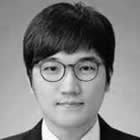 |
| INVITED |
|
 |
| . |
|
|
Gil-Ho Lee
POSTECH, South Korea
Invited – Plenary Session
Prof. Gil-Ho Lee currently works at the Department of Physics, Pohang University of Science and Technology (POSTECH) since 2017. His research investigates Nano-electronic device based on quantum materials including graphene, topological materials, and superconductors. In 2014, he finished his doctorate at POSTECH under supervision of Prof. Hu-Jong Lee. His doctoral research focuses on the superconducting hybrid devices based on graphene. He then spent three years as a postdoctoral researcher at Harvard University under supervision of Prof. Philip Kim, where he experimentally showed crossed Andreev reflection of quantum Hall edge states and Dirac-fermionic electronic optics. Back at POSTECH as a professor, he established the experiment research group and is focusing on topological superconductivity in hybrid structures, graphene-based photon sensors, spintronics based on topological materials.
|
|
|
|
|
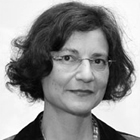 |
| KEYNOTE |
|
 |
| . |
|
|
Annick Loiseau
ONERA, France
Keynote – Plenary Session
I am a Physicist with a large expertise in Condensed Matter Physics, Nanoscience, and in Transmission Electron Microscopy (TEM) and spectroscopies techniques. From 1994 my researches turn to Nanoscience, conducting research on the synthesis, structural, electronic and optical properties of 1D and 2D objects issued from van der Waals materials such as graphene, boron nitride., black phosphorus. I am leading at the Laboratoire d’Etude des Microstructures (LEM), a joint Research unit CNRS-ONERA the research domain on low dimension materials. I am Director at CNRS of the International Research Network on Science of Graphene and Nanotubes (‘Graphene and co’) and from 2013 Partner and Member of the Executive Board of the Flagship graphene launched by the EC.
|
|
|
|
|
 |
| KEYNOTE |
|
 |
| . |
|
|
Vincent Meunier
Rensselaer Polytechnic Institute, USA
Keynote – Plenary Session
Vincent Meunier is a Professor of Physics at Rensselaer Polytechnic Institute where he holds the Gail and Jeffrey L. Kodosky ’70 Constellation Chair. He has been the Head of the Department of Physics at Rensselaer Polytechnic Institute since July 2015. Meunier earned his Ph.D. from the University of Namur in Belgium in 1999 and was a senior research and development staff member at Oak Ridge National Laboratory until 2010 when he joined Rensselaer. Meunier leads the Innovative Computational Material Physics (ICMP) group at Rensselaer where his research uses computation to examine the atomic-level details of materials. He has published more than 300 papers in peer-reviewed journals and is a Fellow of the American Physical Society (APS), the Institute of Physics (IoP), and the American Association for the Advancement of Science (AAAS). He is the Editor-in-Chief of Carbon Trends since 2020.
|
|
|
|
|
 |
| KEYNOTE |
|
 |
| . |
|
|
Titus Neupert
University of Zurich, Switzerland
Keynote – Plenary Session
Titus Neupert has worked as a professor of theoretical solid state physics at the University of Zurich since 2016. His research investigates the topological phases of matter using analytical and numerical methods. He completed his studies at the University of Zurich in 2009 before taking a one-year guest researcher position at RIKEN in Japan. In 2013, he finished his doctorate at the University of Zurich. His doctoral research, mainly conducted at the Paul Scherrer Institute, focused on the realization of fractional quantum Hall phases in lattice models. Titus Neupert then spent three years as a postdoctoral researcher at the Princeton Center for Theoretical Science, USA, where he analyzed Weyl semimetals and platforms for topological quantum computers in superconductors. Back at the University of Zurich as a professor, he established the working group Condensed Matter Theory and received an ERC Starting Grant in 2017, which supports his research on higher-order topological insulators.
|
|
|
|
|
 |
| INVITED |
|
 |
| . |
|
|
Fernan Saiz
KAUST, Saudi Arabia
Invited – Plenary Session
Dr. Fernan Saiz is a research scientist at King Abdullah University of Science and Technology (KAUST) with 10 years of experience in the atomistic modelling of materials. He received his BSc in chemical engineering from the Technical University of Catalonia in 2006 and earned his MSc and PhD degrees in mechanical and aerospace engineering from University of California Irvine in 2011 and 2013. He has been a postdoctoral researcher between 2014 and 2018 at University of Toronto and Imperial College London and a Marie Skłodowska-Curie individual fellow between 2018 and 2020 at the Materials Science Institute of Barcelona (ICMAB-CSIC).
|
|
|
|
|
 |
| KEYNOTE |
|
 |
| . |
|
|
Paolo Samorì
Université de Strasbourg, France
Keynote – Plenary Session
Paolo Samorì is Distinguished Professor at the Université de Strasbourg, Director of the Institut de Science et d’Ingénierie Supramoléculaires (ISIS) and Director of the Nanochemistry Laboratory. He is Fellow of the Royal Society of Chemistry (FRSC), Fellow of the European Academy of Sciences (EURASC), Member of the Academia Europaea, Foreign Member of the Royal Flemish Academy of Belgium for Science and the Arts (KVAB), Fellow of the University of Strasbourg Institute for Advanced Study (USIAS) and Senior Member of the Institut Universitaire de France (IUF). He has obtained a Laurea (master’s degree) in Industrial Chemistry at University of Bologna in 1995. In 2000, he has received his PhD in Chemistry from the Humboldt University of Berlin (Prof. J. P. Rabe). He has been permanent research scientist at Istituto per la Sintesi Organica e la Fotoreattività of the Consiglio Nazionale delle Ricerche of Bologna from 2001 to 2008 and Visiting Professor at ISIS from 2003 to 2008. He has published 370+ papers on nanochemistry, supramolecular sciences, materials chemistry, and scanning probe microscopies with a specific focus on graphene and other 2D materials as well as functional organic/polymeric and hybrid nanomaterials for application in optoelectronics, energy and sensing. He has been awarded numerous prestigious prizes, including the E-MRS Graduate Student Award (1998), the MRS Graduate Student Award (2000), the IUPAC Prize for Young Chemists (2001), the Vincenzo Caglioti Award (2006), the Nicolò Copernico Award (2009), the Guy Ourisson Prize (2010), the ERC Starting Grant (2010), the CNRS Silver Medal (2012), the Catalán-Sabatier Prize (2017), the Grignard-Wittig Lectureship (2017), the ERC Proof of Concept Grant (2017), the RSC Surfaces and Interfaces Award (2018), the Blaise Pascal Medal in Materials Science (2018), the Pierre Süe Prize (2018), the ERC Advanced Grant (2019), the “Étoiles de l’Europe” Prize (2019), the ERC Proof of Concept Grant (2020), the RSC/SCF Joint Lectureship in Chemical Sciences (2020), and Fellow of the Materials Research Society (2021). He is Associate Editor of Nanoscale and Nanoscale Advances (RSC) and Member of the Advisory Boards of Advanced Materials, Small, ChemNanoMat, ChemPhysChem, ChemPlusChem, ChemSystemsChem and SmartMat (Wiley-VCH), Chemical Society Reviews, Nanoscale Horizons, Chemical Communications and Journal of Materials Chemistry (RSC), ACS Nano and ACS Omega (ACS), and BMC Materials (Springer Nature).
|
|
|
|
|
 |
| INVITED |
|
 |
| . |
|
|
Yuanyuan Shi
IMEC, Belgium
Invited – Plenary Session
Dr. Yuanyuan Shi is a Marie Curie research fellow at IMEC, Belgium. She received her Ph.D. degree in Nanoscience from University of Barcelona in 2018. Her research interests focus on novel materials and new concepts/architectures based nanoelectronics, which target to bring new opportunities for the Post-Moore Era. Dr. Shi has published more than 50 research articles (including Nature Electronics, IEDM, etc.), two book chapters and four international patents. She serves as an active committee member in IEEE EDS Nanotechnology committee and in several IEEE conferences, such as IRPS, EDTM and IPFA. Dr. Shi also serves as an active reviewer for Nature, Nature Electronics, Nature Materials, IEEE Electron Device Letters, and others. Dr. Shi is a recipient of 2020 Forbes 30 under 30 (Forbes), Marie Skłodowska-Curie Individual Fellowship (European Commission), 2020 Park AFM award (Park Systems), 2018 IEEE EDS PhD student fellowship (three winners globally each year), etc.
|
|
|
|
|
 |
| INVITED |
|
 |
| . |
|
|
Juan Sierra
ICN2, Spain
Invited – Plenary Session
Juan F. Sierra is a permanent research scientist at the Catalan Institute of Nanoscience and Nanotechnology (ICN2), Spain. He received his bachelor's degree in physics from the Universidad Complutense de Madrid, Spain, in 2003, and his PhD degree from the Universidad Autónoma de Madrid, Spain. After earning his PhD late in 2008, he worked at CEA in the research laboratory Spintec (Grenoble). While at Spintec, he was first awarded a renowned CNRS postdoctoral contract (2009) and then from 2010 to 2012 funded by an IEF Marie -Sklodowska- Curie individual fellowship. His research during this period concentrates on the study of the spin-transfer-torque (STT) phenomena in nanoscale magnetic tunnel junctions and metallic spin valves developed for microwave emission and detection and STT-MRAM technologies. In 2012 he joined ICN2 (hosted in the group of ICREA Prof. Sergio O. Valenzuela). Since then, his research focuses on the electronic, thermal, and spin properties of van der Waals materials as well as of topological insulators
|
|
|
|
|
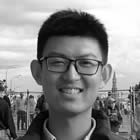 |
| INVITED |
|
 |
| . |
|
|
Luzhao Sun
BGI, China
Invited – Plenary Session
Dr. Luzhao Sun is a research fellow in Beijing Graphene Institute. He received his B.S. in Information Display and Opto-Electronic Technology from University of Electronic Science and Technology of China (UESTC) in 2015, and his Ph.D. degree in physical chemistry from Peking University in 2020. After working as a research assistant in Peking University during July 2020 – January 2021, he became a research fellow in Beijing Graphene Institute and was hired as deputy minister of the Division of Advanced Graphene Materials. His current research interests focus on chemical vapor deposition (CVD)-based graphene film, especially on controlled growth of graphene regarding domain size, layer number, stacking order, doping and strain. He has issued 19 patents and published 25 papers including Nature communications, Science Advances, Advanced Materials, JACS, etc.
|
|
|
|
|
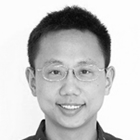 |
| KEYNOTE |
|
 |
| . |
|
|
Li Tao
Southeast University, China
Keynote – Plenary Session
Li Tao is a young chief professor at Southeast University, Nanjing, China. His research interests focus on 2D materials and their flexible/wearable devices, microsystem and nanoengineering platforms for health care and internet of things. He is a co-inventor of the silicene transistors, 12’’ wafer-scale graphene on evaporated Cu and graphene-based GHz flexible RF electronics. He serves as an associate editor for Research and area editor for Microelectronics Engineering, a committee member on IEEE NTC TC8 and MRS China young scientist branch.
|
|
|
|
|
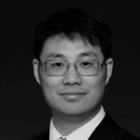 |
| KEYNOTE |
|
 |
| . |
|
|
He Tian
Tsinghua University, China
Keynote – Plenary Session
He Tian is an associate professor of institute of microelectronics at Tsinghua University, China. He received a Ph.D. degree from Tsinghua University in 2015, supervised by Professor Tian-Ling Ren. He carried out postdoctoral research in Yale University and University of Southern California from 2015 to 2017. His research direction is novel micro- and nano- electronic devices based on two-dimensional materials. The main research contents include novel graphene sound source devices, wafer level graphene device integration, two-dimensional synaptic devices and photodetectors. So far, more than 150 SCI papers have been published in Nature Communications, Advanced Materials, Nano Letters, ACS Nano, IEEE EDL, IEEE TED and other journals, with a total of more than 6000 citations.
|
|
|
|
|
 |
| INVITED |
|
 |
| . |
|
|
Sten Vollebregt
TU Delft, The Netherlands
Invited – Plenary Session
Sten Vollebregt (IEEE Senior member) received his B.Sc. ('06) and M.Sc. ('09), both cum laude, in Electrical Engineering from Delft University of Technology. For his master thesis, he investigated the growth of carbon nanotubes at NanoLab, Newton, MA, USA and AIXTRON, Cambridge, UK. In 2014 he completed his Ph.D. thesis in the Microelectronics Department of the Delft University of Technology on the low-temperature high-density growth of carbon nanotubes for application as vertical interconnects in 3D monolithic integrated circuits.
After obtaining his Ph.D., he held a post-doc position on the wafer-scale integration of graphene for sensing applications together with the faculty of Mechanical Engineering and several industrial partners. During this research, he developed a unique transfer-free wafer-scale CVD graphene process. Since Oct. 2017, he is an assistant professor in the Laboratory of Electronic Components, Technology and Materials of the Delft University of Technology where his research focuses on the integration of emerging electronic materials into semiconductor technology for sensing applications. His research interests are (carbon-based) nanomaterials, 3D monolithic integration, wide-bandgap semiconductors, and (harsh) environmental sensors. He has co-authored over 25 journal publications, 4 book chapters, and holds 3 patents
|
|
|
|
|
 |
| KEYNOTE |
|
 |
| . |
|
|
Kang Wang
UCLA, USA
Keynote – Plenary Session
Dr. Kang L. Wang Is Distinguished Professor And The Raytheon Chair Professor At The University Of California, Los Angeles (UCLA). He Is Affiliated With The Departments Of ECE, MSE And Physics. He Received His BS (1964) Degree From National Cheng Kung University And His MS (1966) And PhD (1970) Degrees From The Massachusetts Institute Of Technology. He Is A Guggenheim Fellow, Fellows Of American Physical Society And IEEE. He Is An Academician Of Academia Sinica. His Awards Include The International Union Of Pure And Applied Physics Magnetism Award And Néel Medal, IEEE J.J. Ebers Award For Electron Devices, SRC Technical Excellence Award, And The Pan Wen-Yuan Award And Others. He Also Served As The Editor-In-Chief Of IEEE TNANO, Editor Of Artech House, Editor For Spin And Other Journals, And Associate Editor For Science Advances.
|
|
|
|
|
 |
| INVITED |
|
 |
| . |
|
|
Zhenxing Wang
AMO, Germany
Invited – Plenary Session
Dr. Zhenxing Wang, head of the Graphene Electronics Group at AMO GmbH, is a new member of the Aachen Graphene & 2D Materials Center.
Wang’s research activity focuses on the development of graphene-based electronics, especially for high frequency applications, as well as on the wafer scale integration of graphene material. He is leading different German national projects (e.g. DFG project: HiPeDi, MOSTFLEX) as well as EU international projects from AMO side (Graphene Flagship, 2D-EPL, G-Imager, WiPLASH and GreEnergy – starting in Jan. 2021).
On his background, Wang has a PhD from Peking University on radio-frequency electronics based on graphene and carbon nanotubes, and a Post-Doc at the University of Erlangen- Nuremberg, where he also worked on graphene and self-assembled monolayers.
|
|
|
|
|
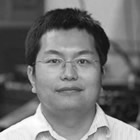 |
| KEYNOTE |
|
 |
| . |
|
|
Xiaodong Xu
University of Washington, USA
Keynote – Plenary Session
Xiaodong Xu is a Boeing Distinguished Professor in the Department of Physics and the Department of Materials Science and Engineering at the University of Washington. He received his PhD (Physics, 2008) from the University of Michigan and then performed postdoctoral research (2009-2010) at the Center for Nanoscale Systems at Cornell University. His nanoscale quantum-optoelectronics group at University of Washington focuses on creation, control, and understanding of novel device physics based on low-dimensional quantum materials.
|
|
|
|
|
 |
| KEYNOTE |
|
 |
| . |
|
|
Peng Zhou
Fudan University, China
Keynote – Plenary Session
Peng Zhou is a full professor at the State Key Laboratory of ASIC and system, School of Microelectronics, Fudan University, China. He received his B.S. (2000) and Ph.D. (2005) degrees in physics from Fudan University, China. He has invented a new type Flash memory technology with both high speed and non-volatile, and realized high-area-efficiency single-transistor logic in-situ memory technology, and obtained high-performance storage devices, high-efficiency algorithms and chips. Currently, Professor Zhou is interested in novel high-efficiency and low-power electronic devices based on layered materials, focusing on the application in memory, synaptic electronics, and neuromorphic systems. He has published more than 200 scientific papers on Nature Nanotechnology, Nature Electronics, and Nano Research etc.
|
|
|
|
|
| |
|
|
|
|
|
|
|
© Phantoms Foundation 2021 |
|
|
|